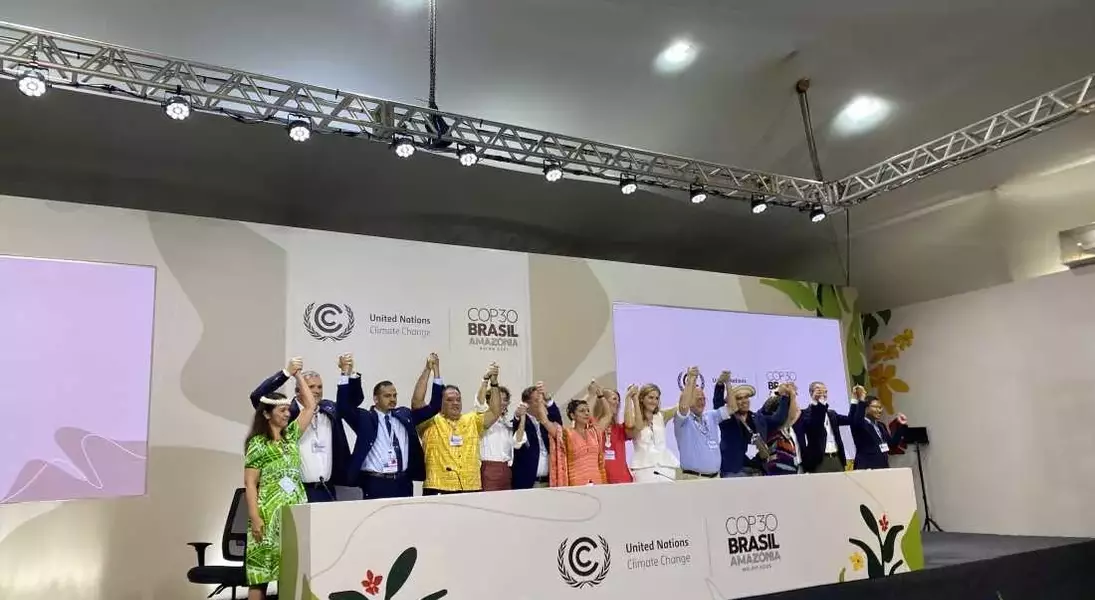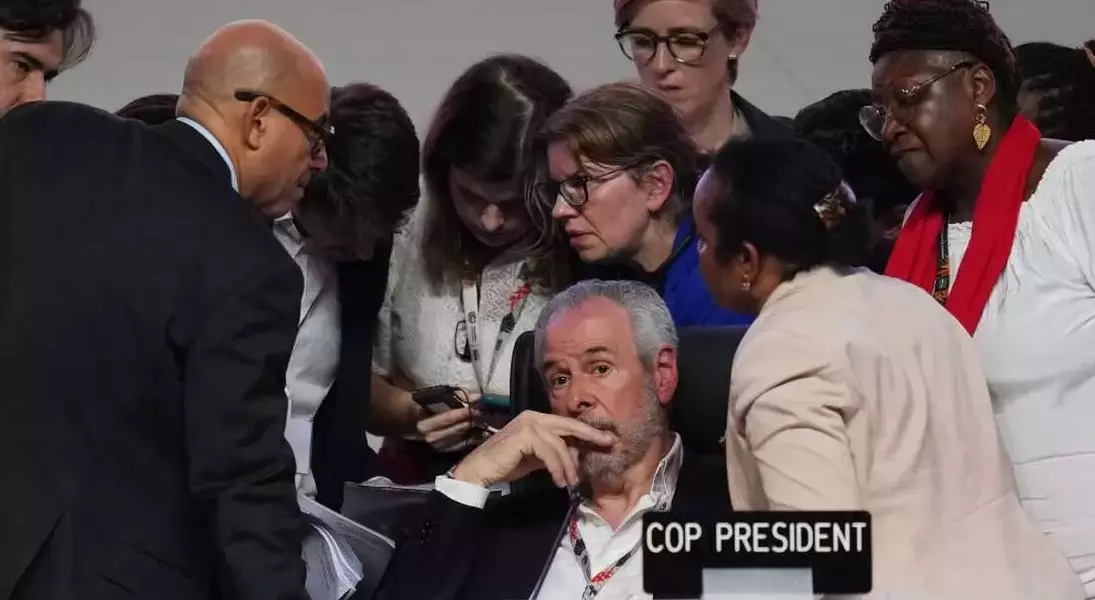




A Call for Action: Navigating the Complexities of Climate Diplomacy
The Unresolved Dilemma of Fossil Fuel Transition at COP30
This year's United Nations global climate summit in Brazil wrapped up without a definitive agreement on phasing out fossil fuels, the leading cause of global warming. The absence of a United States delegation, following the Trump administration's decision not to attend, marked a significant shift in the dynamics of the talks. The conference ultimately yielded only limited advancements in global efforts to mitigate warming and secure financial support for climate adaptation strategies.
International Pressure for a Fossil Fuel Exit Strategy
Earlier in the week, a coalition of more than 80 countries, including developing nations severely affected by climate change, along with economic powers like the United Kingdom and Germany, and even some oil-producing countries such as Mexico and Brazil, urged negotiators to establish a clear framework for phasing out fossil fuels. These nations emphasized the necessity of developing concrete strategies to build upon a landmark 2023 commitment to decrease reliance on oil, coal, and natural gas. However, key fossil fuel-producing countries, including Russia and Saudi Arabia, resisted calls for a structured timeline or process to move away from these energy sources, resulting in the final agreement making no explicit mention of fossil fuels.
A New Forum for Fossil Fuel Phase-Out Discussions
Recognizing the limitations of the official agreement, Brazil's COP30 president, André Aranha Corrêa do Lago, acknowledged the desire among many nations for a more ambitious outcome. Consequently, two dozen countries pledged to collaborate with the UN on a new initiative focused on the transition away from fossil fuels. This effort will culminate in the first international conference specifically addressing this issue, slated to be hosted by Colombia and the Netherlands in April.
The Persistent Challenge of Global Warming Targets
A significant backdrop to COP30 was the grim reality that the crucial 1.5 degrees Celsius temperature target, enshrined in the 2015 Paris Agreement, is likely to be surpassed in the coming decade. Scientific research consistently indicates that the risks to human societies and natural ecosystems intensify with every fraction of a degree beyond this limit. While limiting this overshoot remains a possibility, requiring a substantial reduction in global greenhouse gas emissions, current policies project only a modest decrease by 2035, falling far short of the scientific consensus for avoiding catastrophic warming.
Funding Adaptation: A Critical Yet Underfunded Imperative
As the world grapples with increasingly severe climate impacts, the need for robust funding to help nations adapt has become paramount. Poorer countries, often disproportionately affected by climate disasters despite contributing minimally to global pollution, face acute challenges. While a previous commitment from wealthy nations to provide $300 billion annually in climate financing to developing countries by 2035 was established, historical unreliability in funding and largely empty climate damage compensation funds underscore the urgency of the issue. The COP30 agreement called for increased efforts to triple adaptation financing within a decade and accelerate climate funding for developing countries, though without specific mechanisms for implementation.
China's Evolving Role in Climate Diplomacy and Green Trade
With the United States absent from this year's discussions, attention shifted to China, the largest current emitter of climate pollution and a global leader in green technology manufacturing. China leveraged the conference to elevate discussions around trade, particularly advocating for the free exchange of green and low-carbon products. This stance positions China as a proponent of free trade in this sector, aiming to expand the global market for its environmental technologies.
A Parallel Path for Fossil Fuel Transition
A key development at the conference was the announcement of a new, dedicated gathering focused on the global phase-out of fossil fuels. This upcoming conference, to be held in Santa Marta, Colombia (a fossil fuel-producing nation) and co-hosted by the Netherlands, is intended to complement the existing UN climate process. Colombia's Environment Minister, Irene Vélez Torres, emphasized that this new forum will provide a crucial space for unequivocally addressing the necessity of phasing out fossil fuels. This initiative reflects a growing frustration among nations and NGOs with the slow pace of action within traditional UN climate negotiations.
